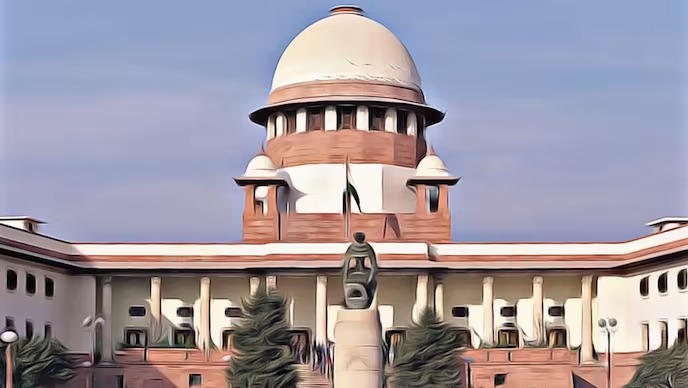P. Sam Koshy, J
1. The challenge in the present writ petition is to the order Annexure P- 1 dated 20.07.2018 whereby the respondents have ordered for recovery of
Rs. 1,12,640/- on account of certain excess payment that has been paid to the petitioner.
2. The contention of the counsel for the petitioner is that the said excess amount has been paid because of the alleged wrong fixation of pay given by
the respondents w.e.f. 01.01.2006 onwards. According to him, it is not the case of the respondents that the said excess payment has been made on
account of any false representation made by the petitioner or for which the petitioner had been instrumental. Counsel for the petitioner submits that the
said recovery is also bad in law for the reason that such recovery has been held impermissible under law in the light of the judgment of the Hon'ble
Supreme Court in the case of State of Punjab and others etc. vs. Rafiq Masih (White Washer) etc. reported in 2015 AIR SCW 50.1 He further
submits that before issuance of the said order of recovery, the respondents had not provided any opportunity of hearing to the petitioner.
3. State counsel, however, opposing the petition submits that it is a case where admittedly the petitioner has been paid something extra which
otherwise he was not entitled for. According to the respondents, immediately on the respondents detecting the excess payment made to the petitioner,
they have issued the order of recovery. Since the petitioner is still in service, they have ordered for recovering the said amount on easy installments
and as such the same cannot be held to be bad in law and impermissible.
4. Having heard the contentions put forth on either side and on perusal of the record, admittedly the petitioner works as a Jail Guard which is a Class-
III post. The alleged excess payment has been made to the petitioner since 01.01.2006 which is more than 10 years prior to the order of recovery. It is
not the case of the respondents that there has been any misrepresentation made by the petitioner for getting the said erroneous pay scale.
5. Given the aforesaid facts, it would be relevant at this juncture to refer to the judgment of the Hon'ble Supreme Court in the case of Rafiq Masih
(supra) wherein it has been very emphatically held by the Supreme Court that in the given situations, the recovery would be impermissible under law.
Some of the situations in the said judgment of Rafiq Masih are reproduced hereinunder:
11. Recovery of excess payments, made from employees who have retired from service, or are close to their retirement, would entail extremely
harsh consequences outweighing the monetary gains by the employer, that a retired employee or an employee about to retire, is a class apart from
those who have sufficient service to their credit, before their retirement. Needless to mention, that at retirement, an employee is past his youth, his
needs are far in excess of what they were when he was younger. Despite that, his earnings have substantially dwindled (or would substantially be
reduced on his retirement). In such circumstances recovery would be iniquitous and arbitrary, if it is sought to be made after the date of retirement, or
soon before retirement. A period within one year from the date of superannuation, should be accepted as the period during which the recovery should
be treated as iniquitous. Therefore, it would be justified to treat an order of recovery, on account of wrongful payment made to an employee, as
arbitrary, if the recovery is sought to be made after the employee's retirement, or within one year of the date of his retirement on superannuation.
12. xxxxxxxxxx xxxxxxxxxx xxxxxxxxxx
(i) Recovery from employees belonging to Class-III and Class-IV service (or Group 'C' and Group 'D' service).
(ii) Recovery from retired employees, or employees who are due to retire within one year, of the order of recovery.
(iii) Recovery from employees, when the excess payment has been made for a period in excess of five years, before the order of recovery is issued.
(iv) Recovery in cases where an employee has wrongfully been required to discharge duties of a higher post, and has been paid accordingly, even
though he should have rightfully been required to work against an inferior post.
(v) In any other case, where the Court arrives at the conclusion, that recovery if made from the employee, would be iniquitous or harsh or arbitrary to
such an extent, as would far outweigh the equitable balance of the employer's right to recover.
6. Taking into consideration the aforesaid situations and comparing the same with the facts of the present case, this Court is of the opinion that the
case of the petitioner stands squarely covered by the judgment of the Supreme Court in the case of Rafiq Masih (supra).
7. Thus, the impugned order of recovery Annexure P-1 dated 20.07.2018 is not sustainable and the same deserves to be and is accordingly set
aside/quashed. The writ petition stands allowed. The respondents are directed that whatever amount has been recovered till now, the same shall be
refunded to the petitioner forthwith preferably within a period of 60 days from the date of receipt of copy of this Order.

